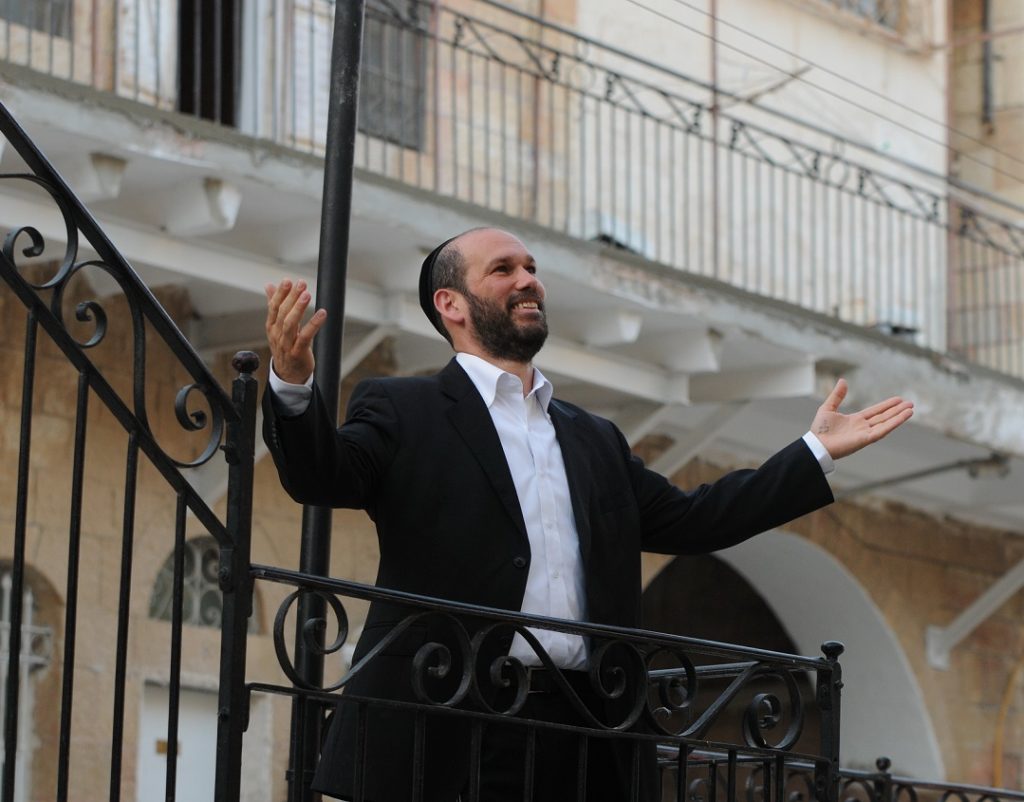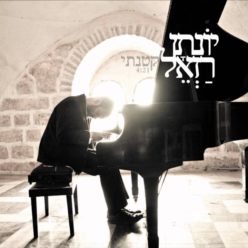Composer: Yonatan Razel
Year: 2014
"S ometimes it takes a personal miracle before one can really comprehend and relate to the words “Katonti mikol hachasadim — I am diminished by all of Your kindness” Yaakov Avinu’s prayer of gratitude and supplication before his encounter with Eisav which ends with his plea of “Hatzileni nah — Please save me!” In Yonatan Razel’s stirring “Katonti ” the singer-composer added another verse to the end of the song: “For Your kindness is great upon me and you have saved my soul from the lowest depths.”
Yonatan Razel experienced his own miracle of salvation a few years back when his four-year-old daughter Rivkah fell off a porch and was in a coma for weeks. While thousands around the world were praying for her recovery Rivkah suddenly woke up and was eventually healed. People who knew the story assumed that his powerfully moving song “Katonti ” was an ode of gratitude for Rivkah but Razel says he actually composed it years before as a tribute to his grandfather cellist Mark Rozelar who was one of Razel’s early music influences.
“It was my grandfather who introduced me to the concept expressed in this pasuk” Razel says. “He was deported from his hometown in Holland and when he found himself on a transport going to Sobibor he managed to jump off the train and save himself. He survived the war and made aliyah baruch Hashem. Later in his life he spoke to me about the night he jumped and fled into the forest: ‘I had nothing but the clothes on my back and now I have a whole family with grandchildren in Eretz Yisrael ’ he told me. After he passed away I composed ‘Katonti’ in his memory.”
American-born Razel was raised in an unusually musical family — his brothers Aharon and Yehuda are singers and musicians in their own right. “Well we are Leviim” he says — where natural gifts were combined with a strong emphasis on education. “I was raised in the world of classical music and I still have some songs I composed when I was around seven or eight written out in musical notation. In fact on my upcoming album there is a song ‘Olam Hafuch ’ which incorporates a tune I composed as a ten-year-old. My compositions and arrangements come from the world of classical piano and string music Brahms and Mahler. Yet for the past 20 years I’ve also been a follower of chassidic and spiritual styles and have come to appreciate the power of a Carlebach niggun.”
His rich musical background — Razel has conducted classical orchestras internationally — continues to service him. His own albums take a long time to emerge because in addition to composing playing and singing he creates all the musical arrangements and conducts them himself. Razel hopes his current effort will be ready for release before Pesach.
“Each album has been five years in the making” he admits “because it takes me time to do it all.”
His fans though who span the spectrum of Israeli and Jewish society obviously think Razel’s music is worth waiting for. “Vehi She’amdah ” sung by Yaakov Shwekey won accolades internationally and was voted Song of the Decade by a popular Israeli radio station. And “Katonti ” too has been met with wide acclaim. In 2014 “Katonti” was chosen as the Israel Music Industry’s Song of the Year by secular judges and in 2016 Razel’s performance was a highlight at HASC’s A Time for Music.
Why do secular Jews identify so strongly with the song’s powerful message? “We are all Yaakov’s children” says Razel “so it’s obvious that his words will resonate in our souls. We are the nation who thanks — and we can never thank enough. Every Jew at his core is humble. He searches to be in touch with this humility this vulnerability and recognition of Hashem’s help.”
“When I went to be menachem avel the family of Naftali Fraenkel Hy”d his mother called me over and told me that she had a strong feeling for the song and sentiment in ‘Katonti Mikol Hachasadim.’ She too felt diminished by all the G-dly kindness she had experienced. To me that was incredible. I’ll never forget it.”
Razel says that being from Shevet Levi guarantees that the music not become an end in itself. “As a Levi I’m attached to both music and to avodah. I see the music as a means and an introduction to Torah and service of Hashem.”



